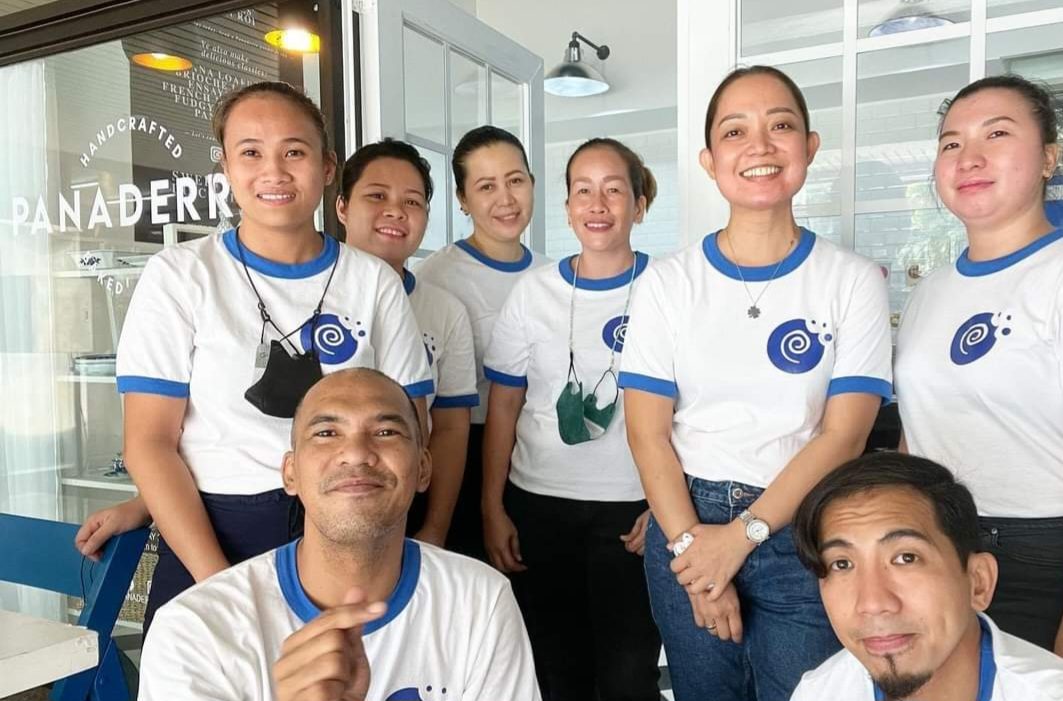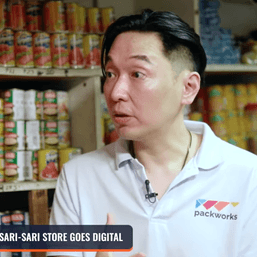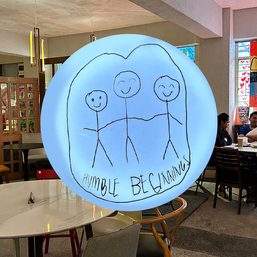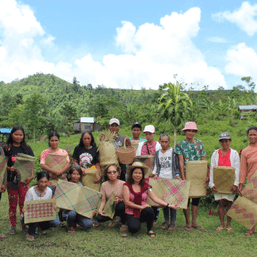SUMMARY
This is AI generated summarization, which may have errors. For context, always refer to the full article.

This month, after more than 13 years, small Filipino leather goods brand Katre closed its doors.
It was unexpected considering that the brand just held a grand 10th-anniversary party and soon after, launched its Hello Kitty-licensed line of bags. That is until you factor in a global pandemic.
The company was just one of the micro-, small-, and medium-sized enterprises which accounted for 99.5% of businesses in the country in 2020 by the Philippine Statistics Authority (PSA).
The latest PSA list showed that 259,707 establishments shut down for good, and 56,971 others temporarily stopped their operations between 2020 and 2021.
About 228,863 other businesses, however, were established during the same period as the pandemic catalyzed a digital transformation, shifting the landscape for businesses and customers.
PSA data from 2022 showed that 61% of Filipinos purchased products or services online.
Beginnings
Katre was started by Kathrina Erro in 2009 as a clothing business after returning to the Philippines with her husband Dexter and son Lee from the United Kingdom, where the family man worked as an accountant.
A new mother in a new country, Kat taught herself to sew and bake, worked as a sales associate at Harvey Nichols, and took courses in shoemaking, airbrush makeup, and interior design.
The family returned to the Philippines, and Kat explored the possibility of having shoes she designed made by Filipino artisans, but prototyping proved too time-consuming.
Instead, she designed clothes for local seamstresses to make and sold them at bazaars and online. She also sold faux leather handbags and accessories, which eventually became popular.
By 2014, she was selling locally-sourced leather handbags from Valenzuela through her Katre website, and she eventually designed and sold leather handbags handmade by artisans in Marikina.
Bold steps to success
At the height of the business, Katre had 11 full-time employees, including an in-house artist and an account executive for corporate orders.
In 2018, one of her dreams came true when a top luxury retailer provided Katre shelf space in some of their branches.
Quarterly, Katre held open house events at the showroom in White Plains, Quezon City. It could be anything from the launch of a summer collection to a special personalized monogram weekend to a Christmas sale. Fashion-forward clients would flock to her events; the on-ground sales were mirrored online, too.
Initially thinking the COVID-19 pandemic lockdown imposed on March 15, 2020, in Metro Manila would only last two weeks, Katre even posted on social media: “See you at the Glass House on March 28!”
Another dream was coming true: a store at Greenbelt, a major mall. But it was not to be.
Wading through the pandemic
“I was not worried at first, because we had savings,” Kat said in an interview on March 13, coincidentally, the same day she decided to officially post a message of gratitude and announce the brand’s retirement online.
“I thought we could still cushion the impact because we had funds that we could use to give the staff allowances [while restrictions were still in effect].”
As months passed and their books consistently reflected zero sales, they continued to hold regular online staff meetings.
She said, “I remember joking that we should put up any essential business: Barb-erro, Tub-erro, Panad-erro.”
In October 2020, they conducted Katre Live events over social media, digging into their burgeoning inventory of bags still in boxes. To entice buyers, they offered discounts, free monogram services, and free shipping.
“There was a huge interest at first, but as the lockdown kept being extended, fewer people spent money on non-essential goods,” Kat recalled.
From hobby to business
Taking up baking at home during the lockdown, Kat established a test kitchen at their small condo. Soon, she bought cheap ovens, a mixer, baking materials, and ingredients and transformed the idle Katre showroom into a kitchen. That’s where Panaderro was born.
“It was not difficult to train the staff members because they also wanted to keep working and they enjoyed the process. When I started Panaderro, I was not yet fully invested in the business. The reason why I decided to pursue the business is [for the welfare of] my staff. Kung ako lang (If it was only me), I would have just taken a break,” Kat said.
The holiday season sales – historically, the peak of retail sales in the Philippines – proved dismal for Katre in 2020, so much so that, though they had committed to a month at the Glass House, they did not even finish their lease.
At the end of 2021, Katre rebranded to Katre & Co., which was a curated collection that expanded from just leather handbags designed by Kat but gifts from, at first, local artisans, then included even imported brands.
Kat bemoans the very slow restart as the Philippine retail industry tries to recover from the pandemic.
“People are eating out and traveling more, but not so much shopping,” she observed.
Handbag sales picked up during the holidays of 2022, but it was not enough.
Letting go, moving forward
She said, “Katre was my first business. I did not think that I would have to close it. I held on to hope that things would go back to normal. We kept going for as long as we could but it all boiled down to funds. There was nothing left to keep the business going.”
Kat has leveraged the Katre customer base to the new business, Panaderro, which brings its innovative spirit to home-style baked goods.
So far, Kat said, “Panaderro is doing great! Since we started actively participating in pop-up events, more people have paid attention.”
Personalized customer service and listening to customer feedback – the same formula that worked for Katre – is proving effective for her food business.
The main bakery is located in the same building as her former showroom. There is now a Panaderro kiosk at a mall in Pasig, and negotiations are ongoing for another in Quezon City.
Kat shared these lessons for other entrepreneurs:
- Offer direct-to-customer services (like live shopping) and promos to liquidate your inventory.
- Build savings that will cushion your workforce from any unexpected events.
- Build a team composed of members who have grit, so that they can grow or adjust to your business. – Rappler.com
Mari-An Santos is an Aries Rufo Journalism fellow.
Add a comment
How does this make you feel?
![[Good Business] Coalition of the willing](https://www.rappler.com/tachyon/2024/07/TL-Coalition-of-the-willing.jpg?resize=257%2C257&crop=423px%2C0px%2C1080px%2C1080px)

![[Good Business] Humanistic national development in the era of AI](https://www.rappler.com/tachyon/2024/06/tl-humanistic-development-of-AI.jpg?resize=257%2C257&crop=284px%2C0px%2C720px%2C720px)
![[Good Business] Redefining success, guided by values](https://www.rappler.com/tachyon/2024/06/TL-Philippines-business-La-Salle-june-12-2024.jpg?resize=257%2C257&crop=290px%2C0px%2C720px%2C720px)

![[Rappler’s Best] US does propaganda? Of course.](https://www.rappler.com/tachyon/2024/06/US-does-propaganda-Of-course-june-17-2024.jpg?resize=257%2C257&crop=236px%2C0px%2C720px%2C720px)

















There are no comments yet. Add your comment to start the conversation.